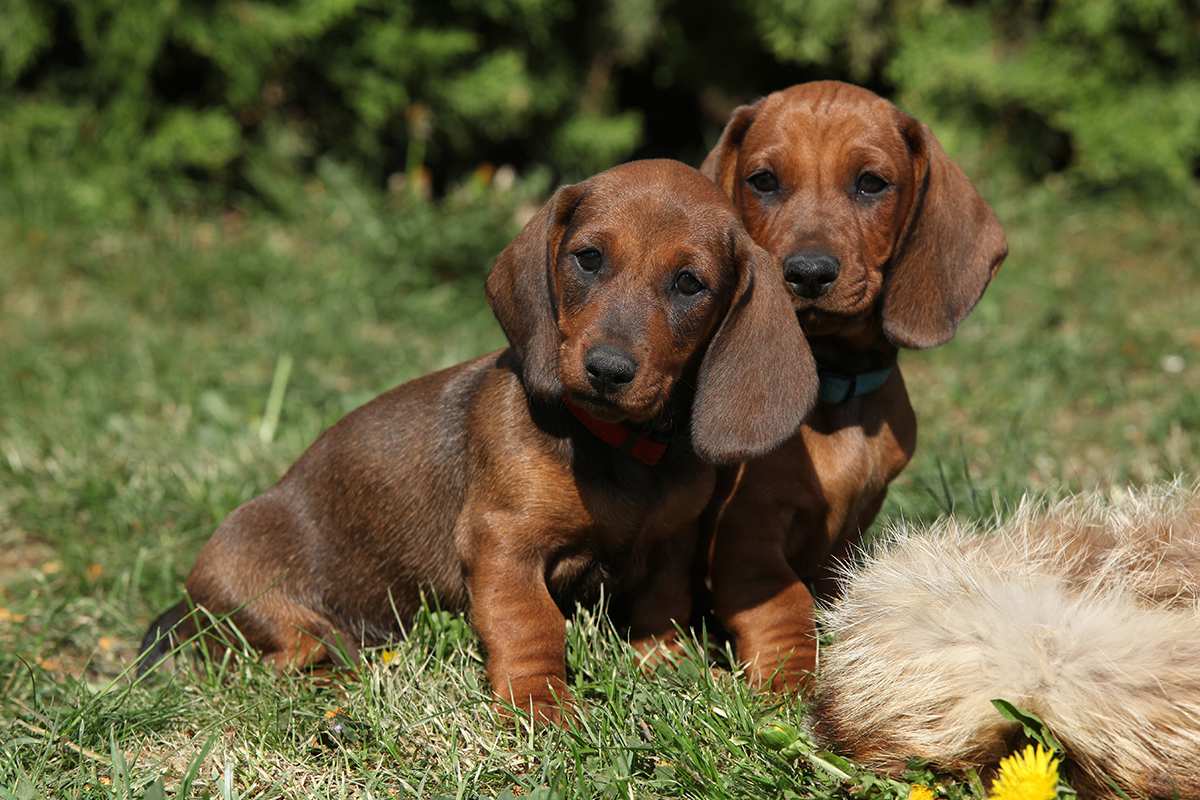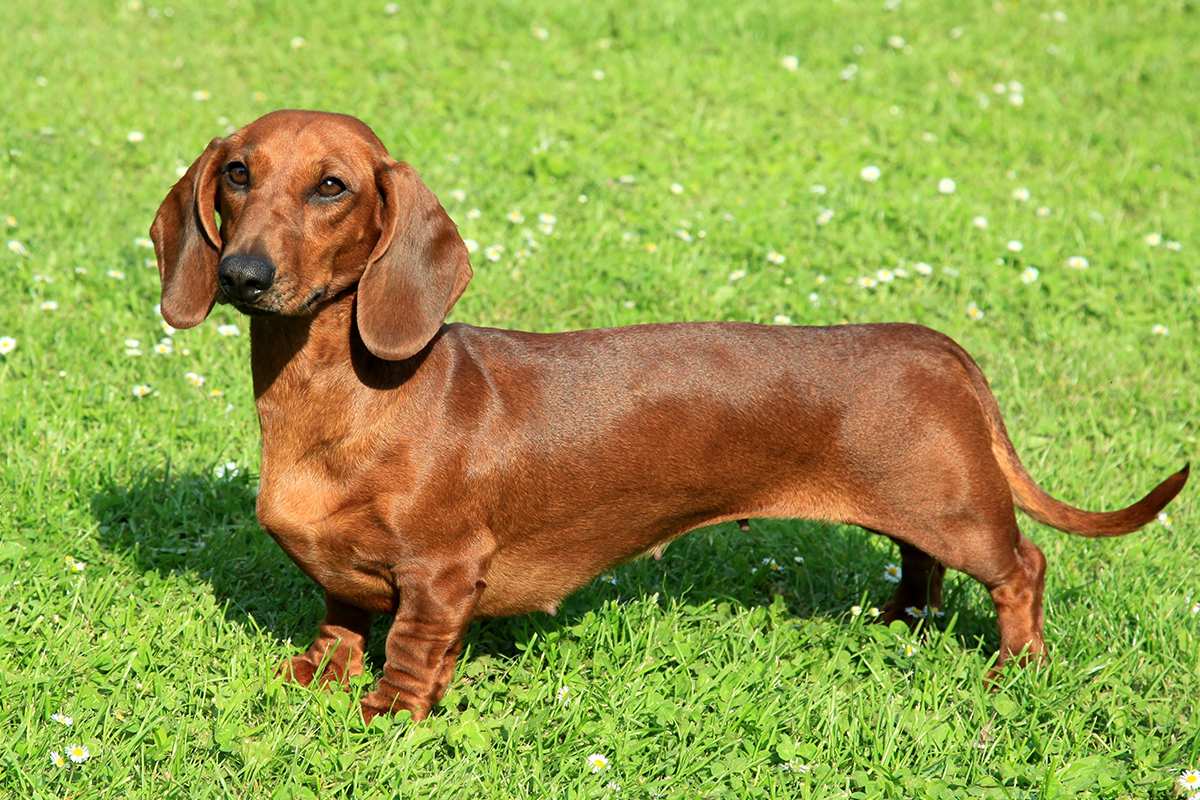Dachshund (Standard)


 Puppy
Puppy
 Fully Grown
Fully Grown
The Dachshund is one of the oldest breeds around and in past years has really came back into fashion. They are seen around more and more as companion dogs.
Standard sized Dachshunds (or really any sized Dachshunds) love their walks. It’s not that important how long the walk is, but more how much time they get to sniff and dig around in the field – that’s what excites them the most.
They are adventurers by heart and have no fear. They seem to have non-stop energy, and their outlet is sniffing, digging and chasing. The more the better, and the calmer they will be later at home.
Their no fear attitude is demonstrated when you see little Dachshunds with their short legs chasing Great Danes or German Shepherds around the park. Their lack of size doesn’t deter Dachshunds, it seems like they even enjoy the challenge! Some people say ‘When a Dachshund looks in the mirror, he sees a lion.’ We couldn’t agree more.
Barking is just like talking for this breed and they are absolute chatterboxes. They love to bark to get your attention, when they hear a noise, to alert you when they want a back scratch, to let you know when they are hungry or just to tell the world that they are there.
Being very independent and fearless can make these little guys hard to train. They will take things into their own paws, which can become dangerous at times.
They love to cuddle and to curl up on your lap, but will never just be happy doing this as they are working dogs by nature. They like to develop a special bond with their owners and are great for single households where the owner has lots of time on their hands for training and walks.
| Weight: | 10-15 kg |
| Health risk: | Medium |
| Life expectancy: | 14-16 years |
| Coat: | Short |
| Grooming intensity: | Low |
| Monthly cost (food): | low |
| Trainability: | Medium |
| Activity level: | High |